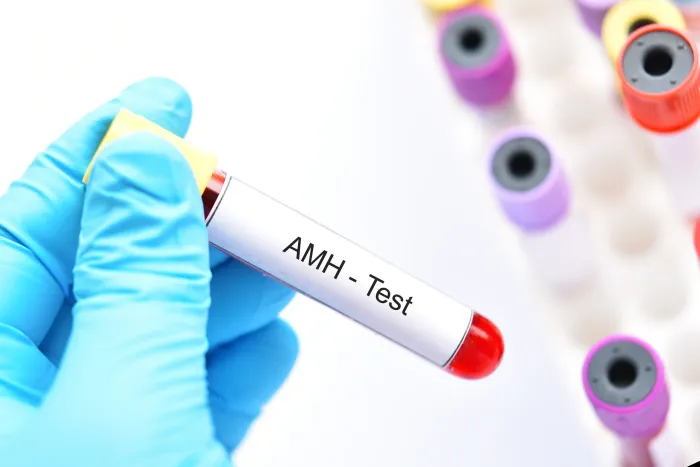How To Naturally Lower PSA Levels?
Concerned about high PSA levels? Learn natural ways to lower PSA through diet, exercise, stress reduction, and lifestyle changes that support prostate health.

Written by Dr. M L Ezhilarasan
Reviewed by Dr. Dhankecha Mayank Dineshbhai MBBS
Last updated on 13th Jan, 2026

Introduction
If you’ve recently had a PSA (Prostate-Specific Antigen) test and your levels are higher than normal, you might be feeling concerned. While elevated PSA levels don’t always indicate a serious problem, they can sometimes signal conditions like prostate inflammation (prostatitis), an enlarged prostate (BPH), or, in rare cases, prostate cancer. The good news is that there are natural ways to help lower your PSA levels and support prostate health.
In this article, we’ll explore simple, science-backed lifestyle and dietary changes that can help you maintain healthy PSA levels.
What is PSA?
PSA is a protein produced by the prostate gland. A small amount of PSA naturally enters the bloodstream, and doctors measure it through a blood test. While PSA testing is commonly used to screen for prostate cancer, high levels can also result from non-cancerous conditions like:
Benign Prostatic Hyperplasia (BPH): A non-cancerous enlargement of the prostate.
Prostatitis: Inflammation or infection of the prostate.
Recent medical procedures (e.g., catheter use, prostate biopsy).
What’s a Normal PSA Level?
Under 4 ng/mL: Generally considered normal, but levels can vary with age.
4-10 ng/mL: May require further testing.
Above 10 ng/mL: Higher risk of prostate issues, including cancer.
If your PSA is elevated, your doctor may recommend additional tests. Meanwhile, adopting healthy habits can help bring your levels down naturally.
Book PSA Test Here
Natural Ways to Lower PSA Levels
Here are some ways to natural ways to lower PSA levels:
1. Eat a Prostate-Friendly Diet
Certain foods have been shown to support prostate health and may help reduce PSA levels:
Tomatoes & Lycopene-Rich Foods: Lycopene, an antioxidant in tomatoes, watermelon, and pink grapefruit, may help lower PSA. Cooked tomatoes (like in sauces) are especially beneficial.
Cruciferous Vegetables: Broccoli, cauliflower, and Brussels sprouts contain compounds that may protect prostate health.
Healthy Fats: Omega-3 fatty acids (found in fatty fish like salmon, flaxseeds, and walnuts) reduce inflammation.
Green Tea: Contains antioxidants that may slow prostate cell growth.
Pomegranate Juice: Some studies suggest it may help lower PSA in men with prostate cancer.
Avoid: Excessive red meat, dairy, and processed foods, which may contribute to inflammation.
Consult Top Physicians To Reduce PSA Levels
2. Stay Active & Maintain a Healthy Weight
Regular exercise helps reduce inflammation and supports hormonal balance, which can influence PSA levels.
Aim for 30 minutes of moderate exercise (walking, swimming, cycling) most days.
Strength training (twice a week) helps maintain muscle mass and metabolism.
Lose excess weight: Obesity is linked to higher PSA levels.
3. Manage Stress & Get Enough Sleep
Chronic stress and poor sleep can increase inflammation and hormonal imbalances, potentially affecting PSA.
Practice relaxation techniques (deep breathing, meditation, yoga).
Aim for 7-8 hours of quality sleep per night.
4. Stay Hydrated & Avoid Bladder Irritants
Dehydration can concentrate PSA in the blood, while certain drinks can irritate the prostate.
Drink plenty of water (at least 8 glasses daily).
Limit caffeine & alcohol, which can worsen urinary symptoms.
5. Consider Natural Supplements (With Doctor’s Approval)
Some supplements may support prostate health:
Saw Palmetto: May help with BPH symptoms.
Zinc: Supports immune function and prostate health.
Vitamin D: Low levels are linked to higher PSA.
Flaxseed: Contains lignans that may help regulate hormones.
Always consult your doctor before starting any supplements.
6. Avoid Activities That May Temporarily Increase PSA
Certain activities can cause a temporary PSA spike, so avoid them before testing:
Ejaculation (48 hours before the test)
Vigorous exercise (24-48 hours before)
Prostate exams or bike riding (wait a few days)
When to See a Doctor?
While lifestyle changes can help, it’s important to monitor your PSA levels with a doctor. Seek medical advice if:
Your PSA levels are consistently high.
You experience urinary symptoms (frequent urination, pain, blood in urine).
There’s a family history of prostate cancer.
Your doctor may recommend further tests like a digital rectal exam (DRE), MRI, or biopsy if needed.
Conclusion
Elevated PSA levels don’t always mean something serious, but taking proactive steps can improve your prostate health. By eating a balanced diet, staying active, managing stress, and following medical advice, you can naturally support lower PSA levels.
If you’re concerned about your PSA levels, Apollo 24|7 offers easy blood testing and consultations with specialists. You can book a test or speak to a doctor from the comfort of your home.
Your prostate health matters—take small steps today for a healthier tomorrow!
Consult Top Physicians To Reduce PSA Levels
Consult Top Physicians To Reduce PSA Levels

Dr. Chethan T L
General Physician/ Internal Medicine Specialist
5 Years • MBBS, MD, DNB (General Medicine)
Bengaluru
Apollo Medical Center, Marathahalli, Bengaluru

Dr. Rajib Ghose
General Physician/ Internal Medicine Specialist
25 Years • MBBS
East Midnapore
VIVEKANANDA SEBA SADAN, East Midnapore

Dr. Arindam Bauri
General Physician/ Internal Medicine Specialist
12 Years • MBBS, MD General Medicine
Kolkata
LifeCare, Kolkata
(25+ Patients)

Dr Aakash Andgi
General Physician/ Internal Medicine Specialist
9 Years • MBBS MD
Bengaluru
Apollo Clinic, JP nagar, Bengaluru

Dr. Aritra Kumar Ray
General Physician/ Internal Medicine Specialist
10 Years • MBBS, MD (General Medicine)
East Midnapore
VIVEKANANDA SEBA SADAN, East Midnapore
